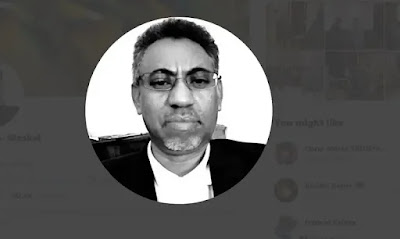Vaccination Programme Shifts a Gear Up
28 FEB, 2021 - 00:02
Sunday Mail Reporters
MORE than 12 000 frontline workers were inoculated against Covid-19 during the first five days of the national vaccination programme, with authorities now preparing to intensify the immunisation blitz.
Zimbabwe last week joined an elite group of African countries that have launched comprehensive Covid-19 vaccination programmes, using the 200 000 vaccination doses donated from China.
An additional 600 000 doses of Covid-19 vaccines procured by the Government from Chinese pharmaceutical giant, Sinopharm, are set to land in the country this week, giving impetus to the country’s largest immunisation programme in history.
Data obtained from the Ministry of Health and Child Care shows that 12 579 frontline workers, including healthcare workers, security sector personnel and journalists, had been vaccinated by Friday, under phase one of the programme.
At least 49 000 frontline workers will receive two inoculation jabs during the current phase.
Co-ordinator of the national response to the Covid-19 pandemic in the Office of the President and Cabinet, Dr Agnes Mahomva, told The Sunday Mail that the immunisation drive will intensify with the arrival of additional doses from China this week.
“The rollout is going on smoothly in spite of the prevalence of misinformation on social media platforms,” said Dr Mahomva.
“From the national level we have decentralised to the provincial level but it is difficult for me to discuss the rollout in numbers, time and places because logistics can change at any time and we don’t want to appear to be misleading the public.
“As for the additional vaccines, yes we are expecting 600 000 more doses next week (this week). I understand preparations for one of our Air Zimbabwe planes to fly to China and bring the vaccines home are in place, but again I cannot say the specific date they will land here.”
Global praise
Zimbabwe has garnered praise from international public health institutions for being among the first African countries to roll out a vaccination programme.
Nine countries on the continent: Morocco (AstraZeneca and Sinopharm), Algeria (Sputnik V), Egypt (Sinopharm), South Africa (Johnson & Johnson), Seychelles (Sinopharm and AstraZeneca), Rwanda (Pfizer and Moderna), Mauritius (AstraZeneca), Zimbabwe (Sinopharm) and Senegal (Sinopharm) have started vaccination programmes.
Guinea has administered only 60 doses of the Russian Sputnik V vaccine, while Ghana and Côte d’Ivoire received their initial share of the Oxford-AstraZeneca vaccine through the World Health Organisation-led Covax initiative last week.
Responding to questions from this publication during a press briefing, the director of the Africa Centres for Disease Control and Prevention (Africa CDC), Dr John Nkengasong, said countries that have begun vaccinating should accelerate their immunisation programmes.
“A journey of a thousand miles begins with a single step,” said Dr Nkengasong.
“We hope that in the course of this journey we can be ahead of the pandemic.
“Africa CDC will be developing a comprehensive mapping of countries who are vaccinating their citizens.”
Phase two inches closer
Dr Mahomva said the successful rollout of the vaccination programme means the country is slowly moving towards the next phase.
College and university lecturers, school teachers and people with underlying medical conditions will be vaccinated during the second phase.
“The Zimbabwe Expanded Programme for Immunisation teams from both the national and provincial levels were seen working very hard, vaccinating healthcare workers under phase one of the National Covid-19 Vaccine Rollout Programme,” Dr Mahomva said in her weekly Covid-19 update.
“Despite initial public concerns, fears and misinformation on Covid-19 vaccines, the national vaccine rollout kicked off very well, progress has been made with the vaccination teams expected to complete phase one soon and move on to phase two and phase three.
“The aim is to cover at least 60 percent of the population in order to achieve herd immunity and protect the nation from a potentially deadlier third wave.
Hope for schools opening
It is anticipated that commencement of the second phase of the vaccination programme will accelerate the Government’s plan to reopen schools.
Authorities are banking on the vaccination of educators and implementation of strict standard operating procedures in order to allow for schools to open.
Preparations for the opening of schools for this year’s first term have begun with the Government having deployed teams of public health experts to assess schools’ preparedness.
The Director of Communication and Advocacy in the Ministry of Primary and Secondary Education, Mr Taungana Ndoro, said Cabinet will announce the date for schools’ opening soon.
“At the moment we are assessing our schools so that we advise Government on the preparedness. Cabinet will then make a determination,” said Mr Ndoro.
“We were deliberate in our monitoring looking at boarding schools in particular because last year they had the highest number of Covid-19 cases.
“We are looking at their adherence to the Ministry of Health and Child Care as well as World Health Organisation Covid-19 guidelines such as spacing in dormitories, dining halls and classrooms.
“Schools are now ready to open, and we are happy with the progress that has been made so far.”
He said boarding schools can enrol pupils to their normal capacity.
“We are encouraging them to operate as normal as long as they are adhering to prescribed guidelines,” Mr Ndoro said.
“Some schools that we visited are being innovative in their spacing and social distancing by creating more space which is commendable.”
Strict measures to minimise the spread of Covid-19 in boarding schools including a review of maximum carrying capacity of hostels, detailed inspection of boarding facilities, and targeted training of hostel matrons, boarding masters and kitchen staff, have been put in place.




















